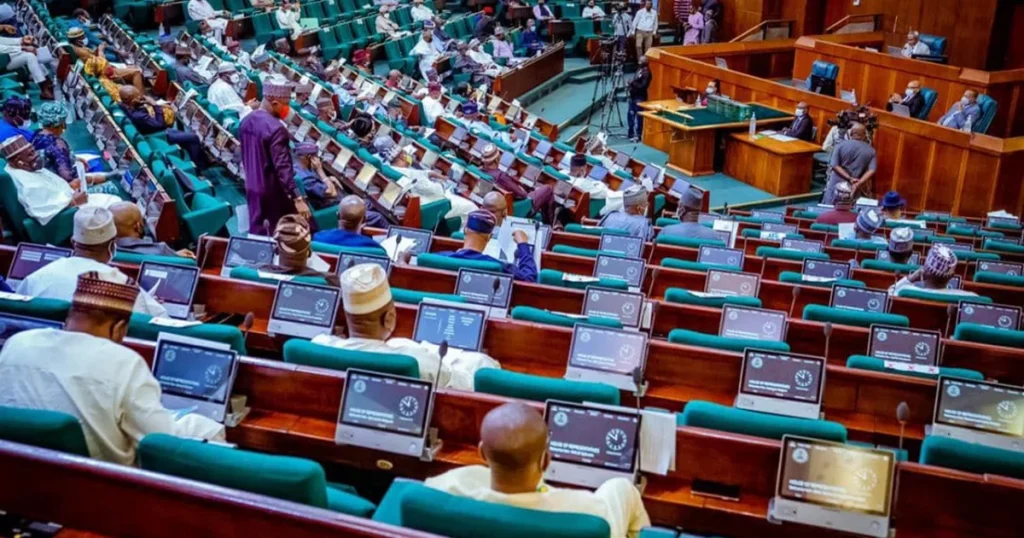The Nigerian House of Representatives has launched an investigation into alleged irregularities surrounding the remittance of a two percent import surcharge intended for the Raw Materials Research and Development Council (RMRDC). This surcharge, levied on imported goods, is designed to fund the RMRDC’s mission of promoting research and development, ultimately reducing Nigeria’s reliance on foreign raw materials and stimulating domestic industrial growth. The House’s inquiry stems from concerns raised by Representative Mustapha Aliyu, who pointed to discrepancies between the legally mandated two percent surcharge and the significantly smaller amount reportedly received by the RMRDC. This discrepancy raises questions about the transparency and accountability of the remittance process, potentially impeding the RMRDC’s ability to fulfill its crucial mandate.
The RMRDC, established in 1987 and operating under the Science and Technology Act of 2004 (later repealed and reenacted in 2022), plays a pivotal role in Nigeria’s pursuit of economic diversification and self-sufficiency. Its core objective is to foster the research, development, and utilization of locally sourced raw materials, thereby bolstering domestic industries and reducing dependence on imported goods. The two percent import surcharge, enshrined in the RMRDC Act of 2022, serves as the primary funding mechanism for the Council’s operations. However, the alleged inconsistencies in the remittance of this surcharge have raised alarm bells within the House of Representatives, prompting a deeper examination of the financial processes involved.
Representative Aliyu’s motion, adopted by the House during plenary, highlights the critical disconnect between the legal stipulation of a two percent surcharge and the reported remittance of a mere 0.05% to the RMRDC. This significant disparity not only raises concerns about potential financial mismanagement but also jeopardizes the Council’s ability to effectively execute its mandate. The lack of transparency surrounding the calculation and disbursement of the surcharge further exacerbates the issue, hindering the RMRDC’s capacity to plan and implement its strategic initiatives for promoting local raw material development. Furthermore, the motion alleges a lack of clarity regarding the source of the funds currently received by the RMRDC, further fueling concerns about the integrity of the remittance process.
The House resolution, passed under the leadership of Speaker Tajudeen Abbas, underscores the gravity of the situation and calls for immediate action. It directs both the Federal Ministry of Finance and the Nigeria Customs Service, the entities responsible for collecting and remitting the surcharge, to provide a comprehensive explanation of their methodology and criteria for calculating the remittance. This demand for transparency seeks to shed light on the discrepancies and address the concerns raised about potential irregularities in the process. Furthermore, the House has mandated the publication of a transparent framework for calculating and implementing the two percent surcharge, ensuring future compliance with the RMRDC Act of 2022 and promoting accountability in the management of these crucial funds.
The House resolution also calls upon the Federal Ministry of Finance to rectify the situation by ensuring the accurate calculation and immediate remittance of all outstanding arrears of the two percent surcharge owed to the RMRDC. This directive aims to restore the Council’s financial stability and enable it to effectively carry out its mandate of promoting local raw material development. The investigation and subsequent actions taken by the House of Representatives signify a commitment to ensuring that the RMRDC receives the necessary funding to drive Nigeria’s industrial growth and economic diversification agenda.
The implications of this investigation extend beyond the immediate financial concerns surrounding the RMRDC. It highlights the importance of transparency and accountability in the management of public funds, particularly those earmarked for crucial national development initiatives. The House’s decisive action sends a strong message about the need for adherence to legal provisions and the responsible stewardship of resources allocated for the advancement of Nigeria’s economic and technological capabilities. The outcome of this probe and the subsequent actions taken by the relevant authorities will be closely watched, as they hold significant implications for the future of the RMRDC and its role in driving Nigeria’s economic self-reliance.


